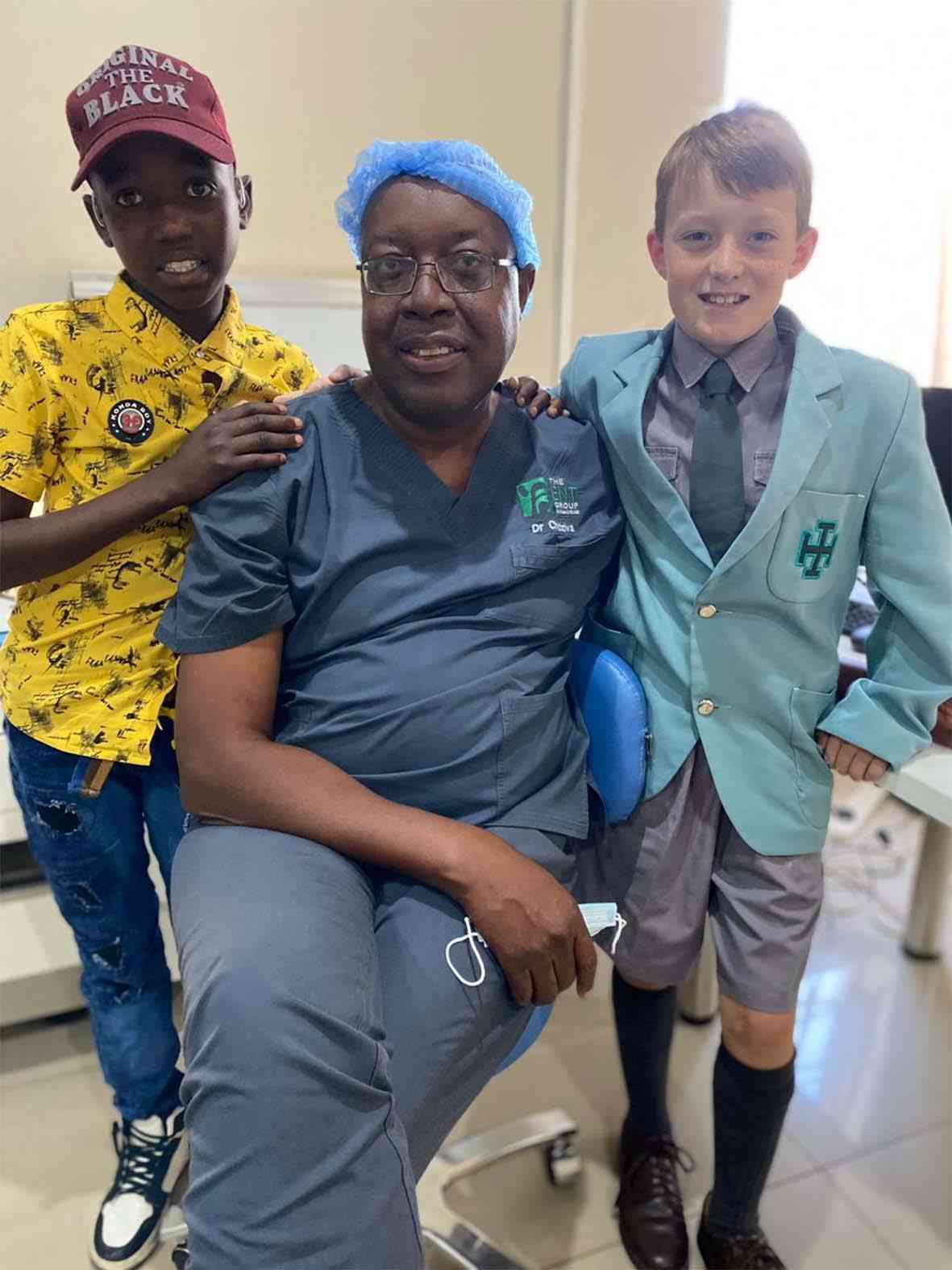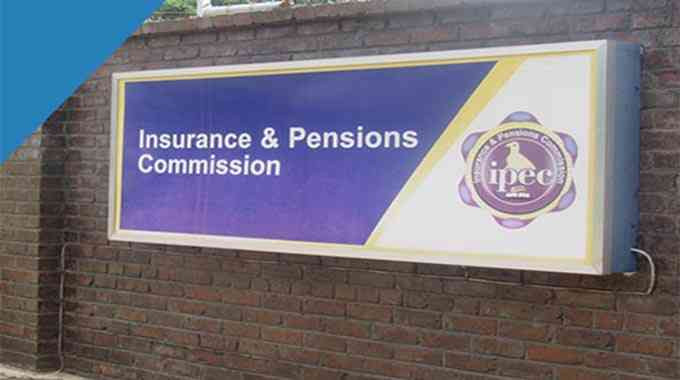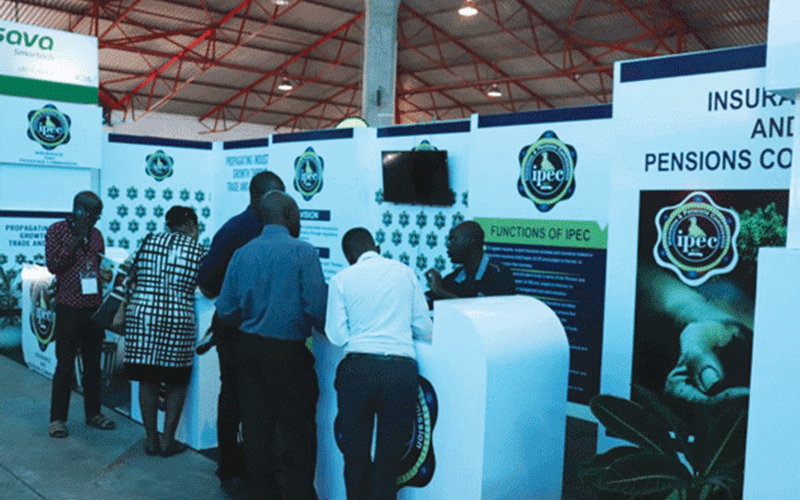
INFORMATION Technology (IT)) aided education is set to revolutionarise the challenges faced by hearing impaired and deaf children.
The effect of not being able to hear and speak has a major impact on the affected individual. If deaf people are not helped on time, the gap between them and the hearing world widens, leaving them behind.
In an interview with an Ear, Nose, and Throat (ENT) Specialist, Dr Clemence Chidziva in Harare, recently, it was evident that the world in general, and in particular, Zimbabwe, did not appreciate deafness as a disability.
"When people see a deaf person, they don't see any physical disability. The disability is silent, nothing shows disability, it is a hidden disability.
"From a cultural perspective, people thought a deaf child was bewitched.
"People did not, and still do not understand hearing impairment and deafness.
"They thought that it is a curse, or the child had been bewitched.
"Instead of seeking medical help from hospitals, they visited n'angas (witch doctors) or prophets. They would hide their deaf children, mainly because they could not communicate with spoken word," Chidziva said.
- Let the world hear
Keep Reading
Having attained his first Medical Degree at the University of Zimbabwe (UZ), Chidziva sought to further his education. He wanted the deaf to hear.
After training as an Ear Nose and Throat (ENT) surgeon in Cape Town, Chidziva came back home. He worked as a consultant ENT surgeon at the then Harare Central Hospital, now Sally Mugabe Hospital.
As head of ENT in the early 2000, he realised that what was available locally was way behind what he had experienced while training to become an ENT surgeon.
"With HIV/Aids, as a pandemic, the economic melt-down, and so many competing factors, there was no funding for hearing impairment and deafness, it was even considered a luxury to fund ear and hearing healthcare programmes, which would address deafness.
“The government was not in a position to help.
"The public health space had emergency issues to deal with. There was no space for hearing impairment and deafness programmes.
"With no voice, the deaf were excluded in communities.
"Today, the deaf are still excluded in many areas. The reason being the communication gap.
"I saw the need that someone had to bring that positive change. The first thing to do was to raise awareness on hearing impairment and deafness. In 2008, I started a locally based non-governmental organisation (NGO) called the WizEar trust, where we trained and capacitated communities, equipped health institutions and raised awareness on hearing impairment and deafness.
“WizEar is now a fully registered private voluntary organisation (PVO), whose foot print has reached local, regional and international fora in efforts to mainstream hearing impairment and deafness programmes," the doctor said.
He further stated that the organisation was founded on three pillars — advocacy, training with capacity development and service delivery.
Charity begins at home. The first centre to be assisted was Sally Mugabe Central Hospital where he worked.
"We built a dedicated paediatric ENT and audiology clinic at Sally Mugabe children’s hospital. We also built and equipped two dedicated paediatric ENT theatres at Sally Mugabe children’s Hospital,” Chidziva said.
“In addition we have equipped most provincial and district hospitals around Zimbabwe with audiological equipment.
"We soon realised the yawning gap in man power needs in Ear and Hearing Healthcare Programmes. In partnership with the University of Zimbabwe, the University of Cape Town, CBM and other well-wishers, WizEar was instrumental in the establishment of BSC Audiology and BSC speech therapy programmes at the University of Zimbabwe.
"These programmes are now well established at the University of Zimbabwe, producing high calibre audiologists and speech therapist for our nation," he said.
With rural communities lagging behind, WizEar set out to bridge the gap.
"Through our service delivery arm as WizEar, we set up to assist the few we could at a time. We embarked on ear camp outreach clinics to the rural areas. We targeted those hard to reach and marginalised communities. Besides giving a service to the deaf, each ear clinic also included teaching, training and advocacy around ear and hearing health care programmes,” Chidziva said.
"As we took the ear camps to the marginalised communities, we realised that the need was massive.
"Each outreach ear clinic saw over 200 people coming through. The response was overwhelming. Looking at the needs, our work is a drop in the ocean. More partners are required in health care delivery. The government cannot do it alone. More private and voluntary players must come on board.
"The WizEar trust also adopted the Pedro Arrupe School for the deaf at St Musami Mission in Murehwa, to become a model integrated educational environment for hearing impaired and deaf children. Due to funding constraints, Pedro Arrupe School was dilapidated, it was an eyesore.
"We partnered with St Paul’s Musami Mission Hospital to help revive Pedro Arrupe School for the Deaf. We have since rebuilt the centre, to be able to comfortably house the learners.
"We have equipped the centre for practical and vocational training. There are now able to offer garment making, building, carpentry, market gardening and culinary skills to hearing impaired and deaf learners at the school,” he said.
In addition, Chidziva said the school also boasts of a fully equipped high-tech computer lab.
“This is revolutionising the teaching of hearing impaired and deaf learners at the school. Information technology is ever evolving. We are, therefore, appealing for players and well-wishers in the IT field to come over and partner us,” he said.
"At St Paul’s Musami Mission School, the deaf children attend classes with children who can hear and speak. I see the old system where we had schools for the deaf being a drawback. It takes the children away from the real world.
“At that exclusion institution, the children learn to communicate among themselves using sign language. Communication should be integrated.
“Those who hear should be able to understand the deaf. The deaf should also be able to understand those with words. This is the concept that we are using at Pedro Arrupe for the deaf," the ENT specialist said.
Chidziva was pleased to note that the learners no longer end schooling in Grade Seven.
"The children studying under Pedro Arrupe used to end schooling in Grade Seven, but now they complete their O Level at the mission. We are using computers and the digital language to bridge the gap and maximise every child’s potential,” he said.
“Deaf children have fewer distractions, they don't hear, so they have the ability to focus and concentrate better.
"When a deaf child learns the digital language, the result is pleasing," the soft-spoken doctor said.
Chidziva bemoaned the education system where one passed an examination with no skill to look after themselves.
"Look at the number of disabled persons, who are beggars. Some of them are graduates, because they were not empowered through education, they were not able to live on what they acquired at school or college,” he said.
“We have revised that modus operandi, education should equip one with life skills. The deaf can be included in communities. At Arrupe, the deaf children are in class with children with speech. As WizEar, we assess if one needs hearing aids, treatment, or other intervention.
"They can be self-sufficient as professionals in their chosen fields. So, using computers and sign language, we have already moved mountains for the deaf child, God knows what artificial intelligence (AI) will bring.
"We should not leave any child or adult behind.
"We need more schools like the Pedro Arrupe School for the Deaf at Musami Mission. If each district could have a similar initiative, then the demand for affordable places would ease. As a collective, we would have an inclusive world," Chidziva said.
He said Pedro Arrupe School would soon be the second home for a 12-year-old boy, Simba Pako, as he takes on a new chapter in his life.
Simba made news when his childhood friend, Declan Stanger, cycled 38km from halfway house to Rusape.
Simba's father is one of the tractor drivers at a farm owned by Declan's parents.
"Both boys were born on the farm. For years, the two had their special communication. Declan realised that they were no longer able to communicate effectively,” Chidziva said.
"Declan proposed to his parents that he could assist them in paying school fees for Simba through cycling. Indeed, on Saturday, March 9 2024, Declan cycled to bring hearing to his friend.
"One of the well-wishers, knowing that I am an ENT doctor, approached me. We agreed to support Declan’s dream to bring hearing to Simba.
"Simba is going to be one of our IT literate-children. We wish to see IT-aided education become a reality for deaf children.We will use artificial intelligence too. The world is dynamic. We too are keeping abreast," he said.
Children can show the way as their love is unconditional and expects no payment in return.
"Children have pure, unconditional love. If we could all learn from Declan, we would make the world a better place. Declan has proved that indeed it is possible to 'Let the world hear', he cycled to bridge the communication gap for his dear friend Simba, who is deaf,” Chidziva said.
"As we strive to bring communication to everyone, it is your duty too to help the deaf person near you.More of our inclusion work can be found on our website.https://www.wizear.org," he said.
Dr Chidziva's centre offered Simba full audio tests, comprehensive reports, audiometry tests, advice on intervention and schooling, coming up with the offer to have Simba at Pedro Arrupe School for the Deaf at St Paul’s Mission.
- NB: Well, wishers can send proceeds to Kerry Ann Stanger, Declan's mother.+263 77 489 1022. Be a Declan to your friend in need. Let the world hear.










